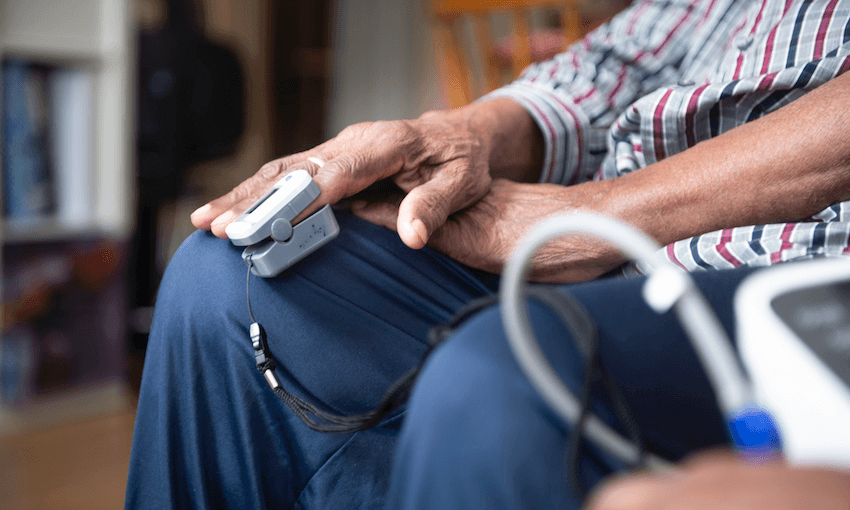Trying to teach people to ‘do better’ with a set of social conditions that are unfair and health-damaging is not only useless, it’s harmful, writes health researcher Mary Breheny.
As the population ages, there is increasing interest in how best to maintain health in later life. Fending off infirmity is regarded as a double win: better for older people and better for society. To this end, simple health interventions are eagerly researched and promoted in the media.
Eating well, exercising diligently, doing mental gymnastics with sudoku and second language learning are all proposed as ways to do better in older age. We are encouraged to believe that healthy ageing is the outcome of a lifetime of careful preparation and hard work.
Ageing better – a matter of self-control?
The headline of a recent study adds to this weight of expectation. It suggests that increasing self-control may improve ageing. The findings are used to suggest interventions to increase self-control to: “improve not just length of life, but also quality of life”. Ability to “contain one’s own thoughts, feelings and behaviours” is given as a route to a longer, healthier life.
On the surface, it sounds pretty innocuous. Being able to control yourself sounds like a good thing. Intuitively, it sounds like it could make people healthier.
Our longitudinal research with older New Zealanders suggests that it is not that simple. Evidence from our Health, Work and Retirement longitudinal study is that socioeconomic status is the strongest predictor of health outcomes in later life. Socioeconomic status refers to the resources that people have and how well these resources meet their needs. Our findings reflect a weight of evidence internationally that access to resources shapes health in later life and patterns how long people live.
Weathering the storm
How well people age is the outcome of a lifetime of experiences. It depends on childhood circumstances, educational success, employment history, disabling health conditions and housing tenure. These are patterned by ethnicity, gender, relationship history and caregiving responsibilities. To make it even more complicated, they all act together. The chances of success in education is shaped by ethnicity; the chances of staying in employment depends on caregiving responsibilities and gender.
Life experiences shape people’s thoughts, feelings and behaviours too. Life experiences teach people what the future might hold for them, how much of the world is theirs for the taking. Whether they should savour pleasures today or pursue rewards in the future. Whether, given what old age looks like among their families and communities, it makes sense to anticipate a long and healthy later life.
Arline Geronimus uses the phrase “weathering” to describe how chronic stress erodes health over time. Over time, the stress of managing daily lives of poverty, racism and sexism builds up, leading some groups to age more quickly. Professor Geronimus warns of the dangers of pre-judging how people deal with the conditions they find themselves in.
Interrogating self-control
This is hugely important when we come to tell people how they should conduct themselves to improve their health. “Self-control” might not be a simple internal process that can be taught and refined.
What might look like a lack of “self-control” from one perspective may be an accurate assessment of how much control people have over the circumstances of their lives – beliefs people develop because of the struggles they experience.
“Self-control” may be the outcome of a lifetime of advantage, something people appear to develop when the world consistently goes their way. Or it may be a resource that is depleted as people struggle through a lifetime of adversities, leaving them arriving at later life in poorer health, with self-control spent. Either way, the answer to better later lives is not training people to control themselves.
Advocating health
Health researchers should advocate for better health. And the types of solutions matter – they tell our communities what to focus on, what kinds of people there are, and how we should treat them. Research advocating for improved self-control blames people for their poor health. It promotes the notion that healthy ageing is an individual responsibility rather than a systemic failure of our society to distribute resources equitably.
Interventions like these are not without history. They are part of an ongoing effort to teach people to do better with a set of social conditions that are unfair and health-damaging. Proposing solutions like this is far from useless. It is harmful.
Investing in equity
We cannot find it acceptable to train people to do better, to try harder, to control themselves more to prevent health challenges in older age. This will do nothing to address a lifetime of exclusion from the resources needed for good health in older age.
Self-control is not a lever that we can pull to improve health at a population level. Community investment in broadening access to resources is where our health advocacy efforts should lie.
